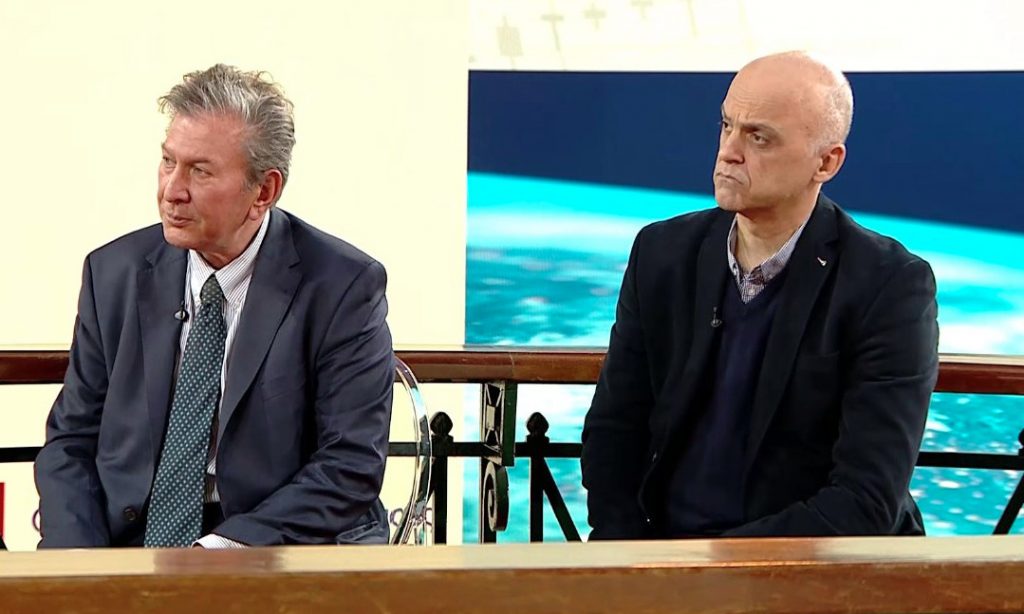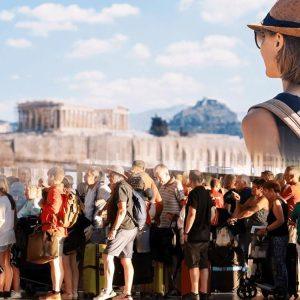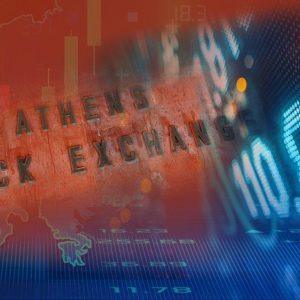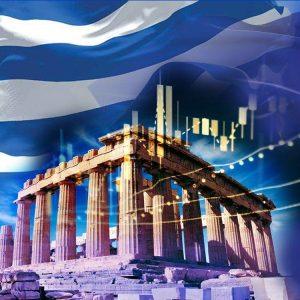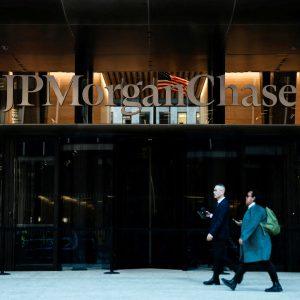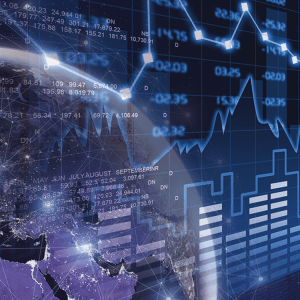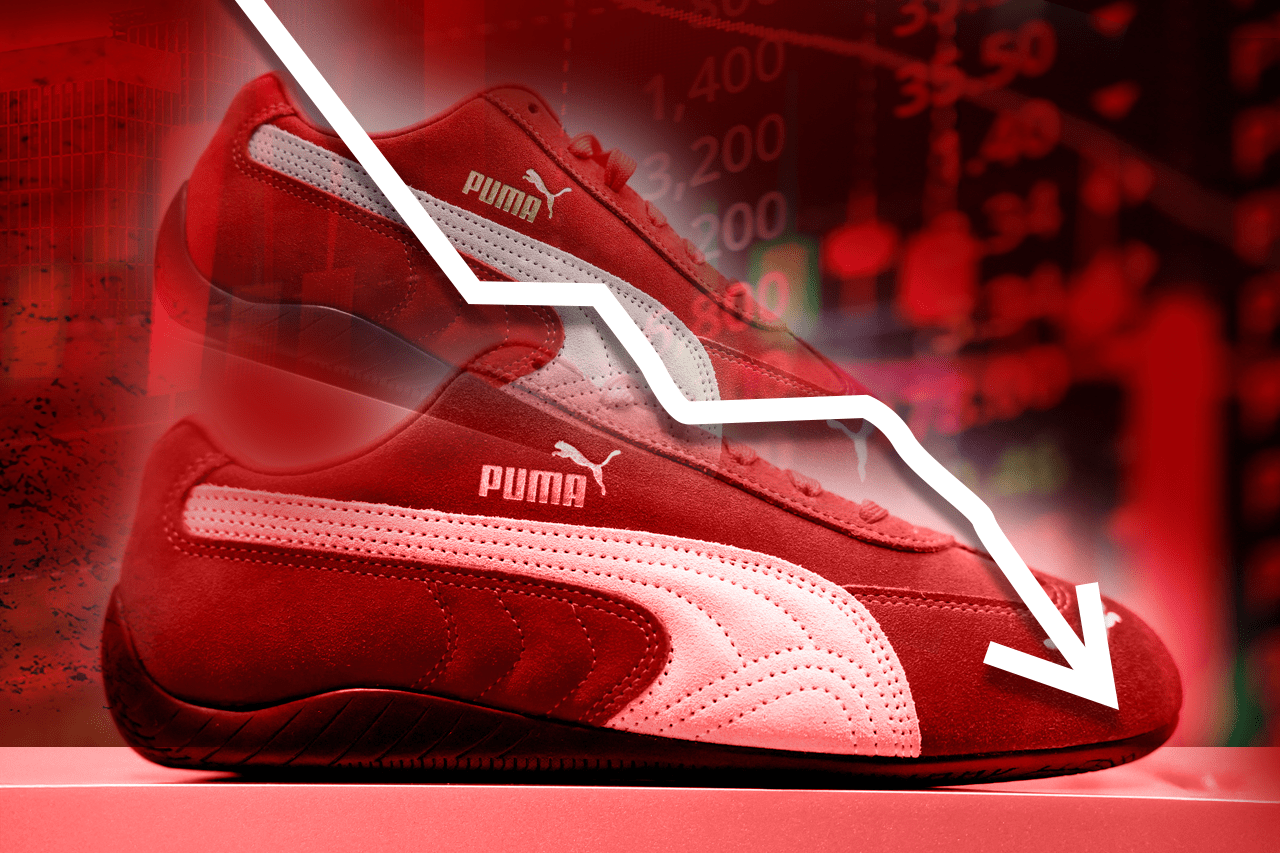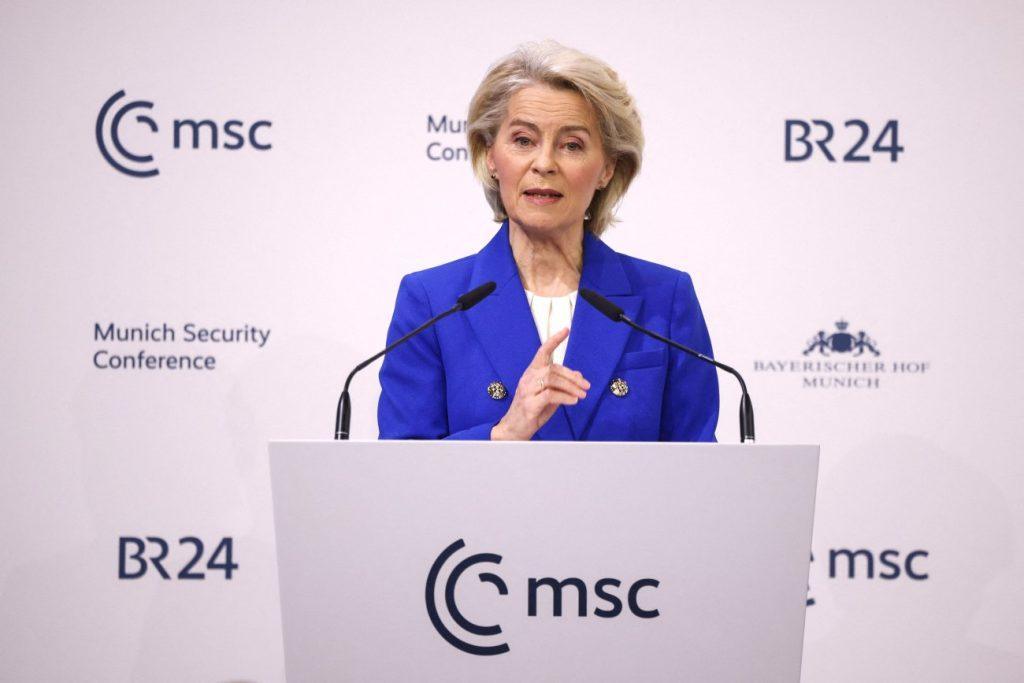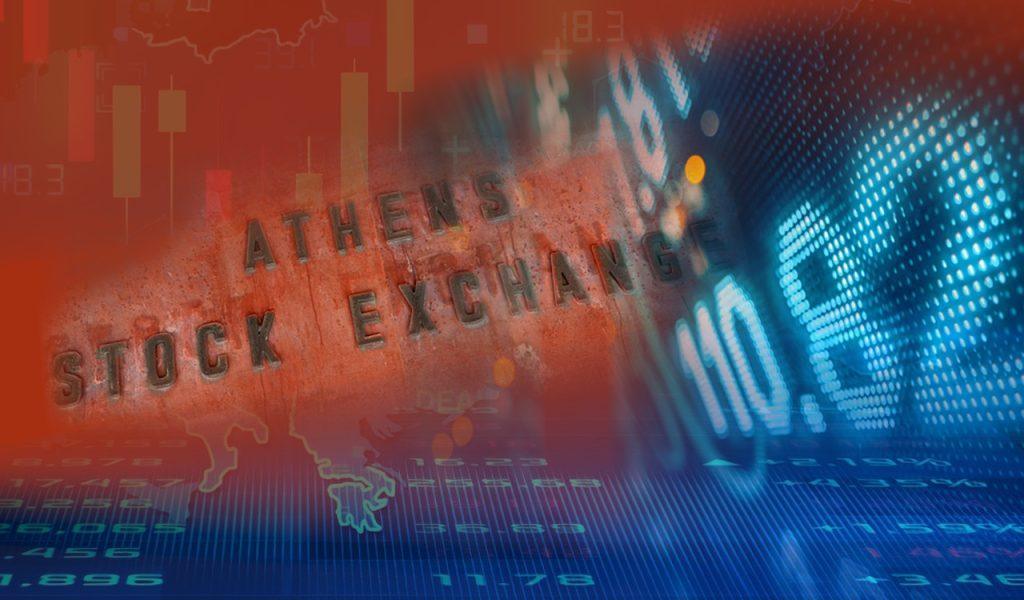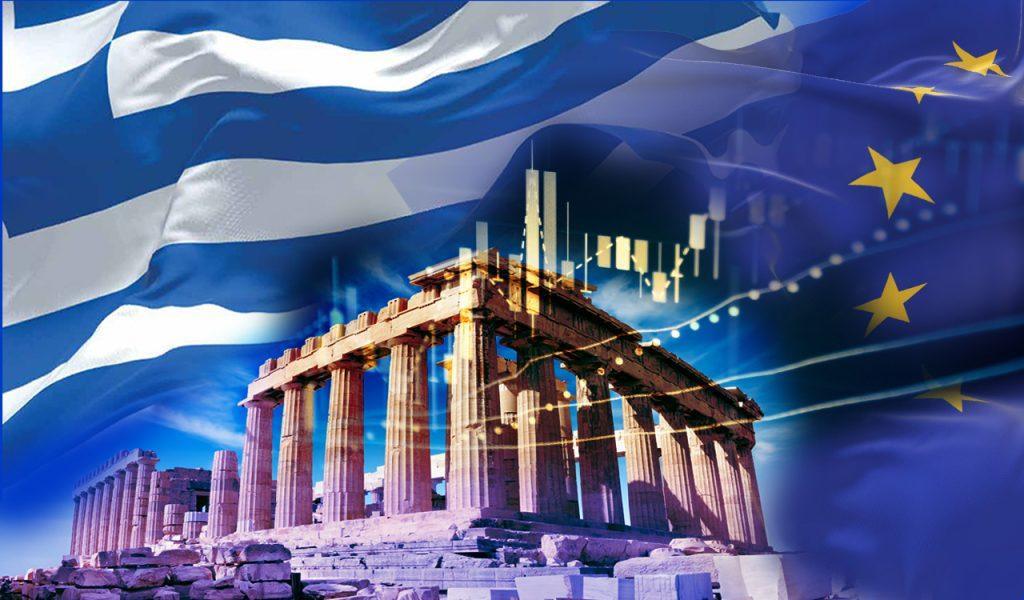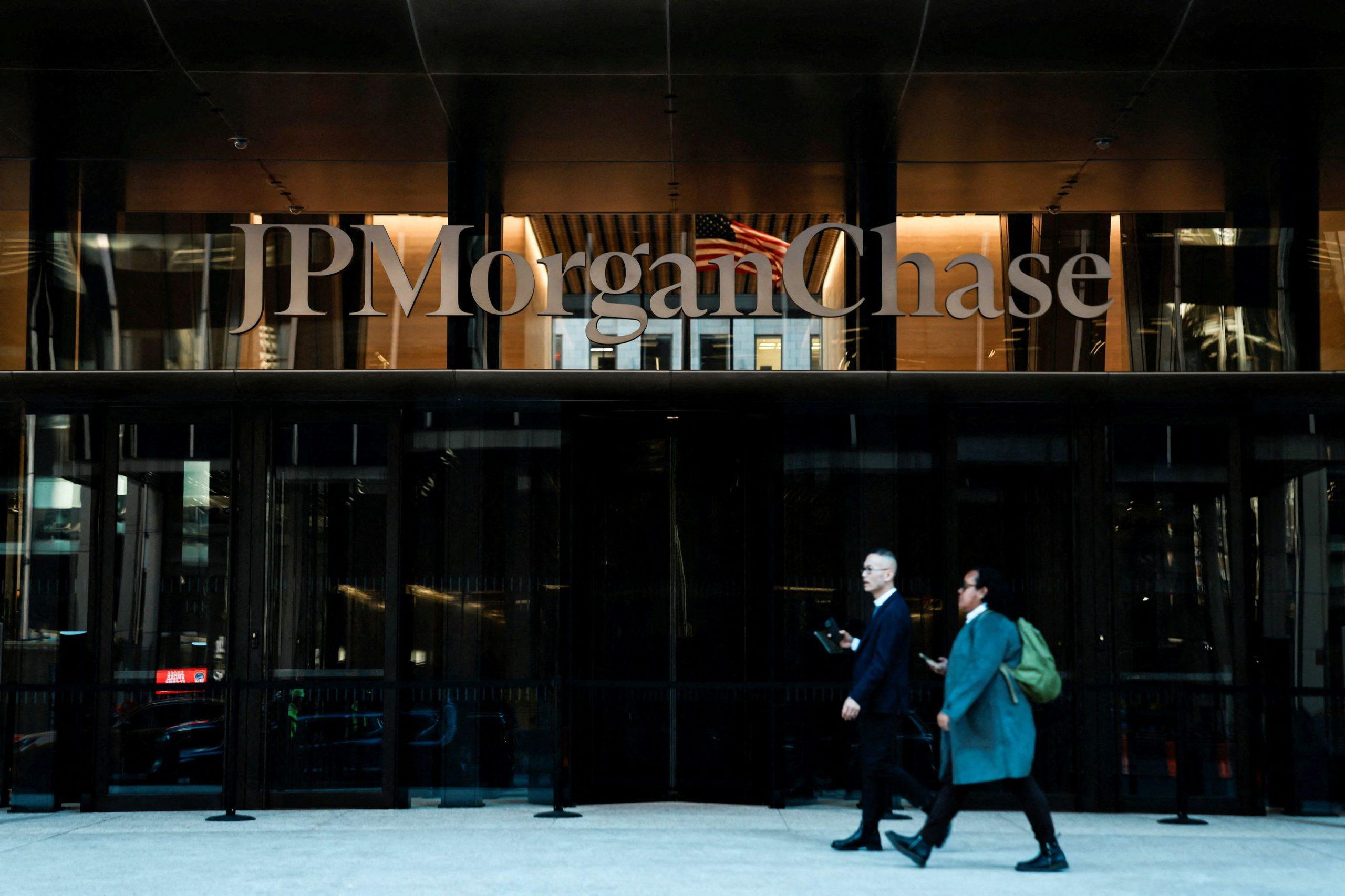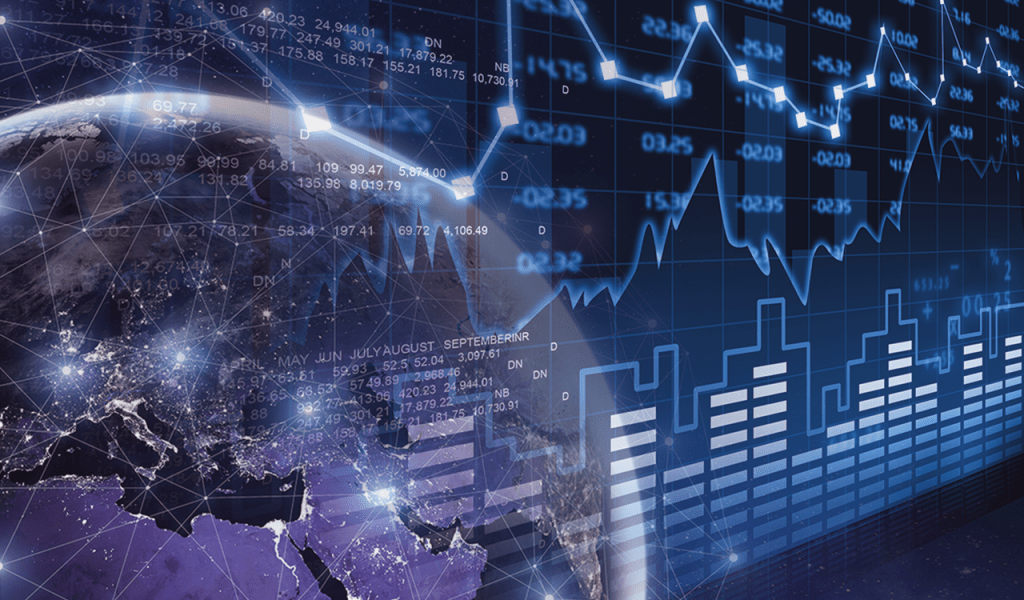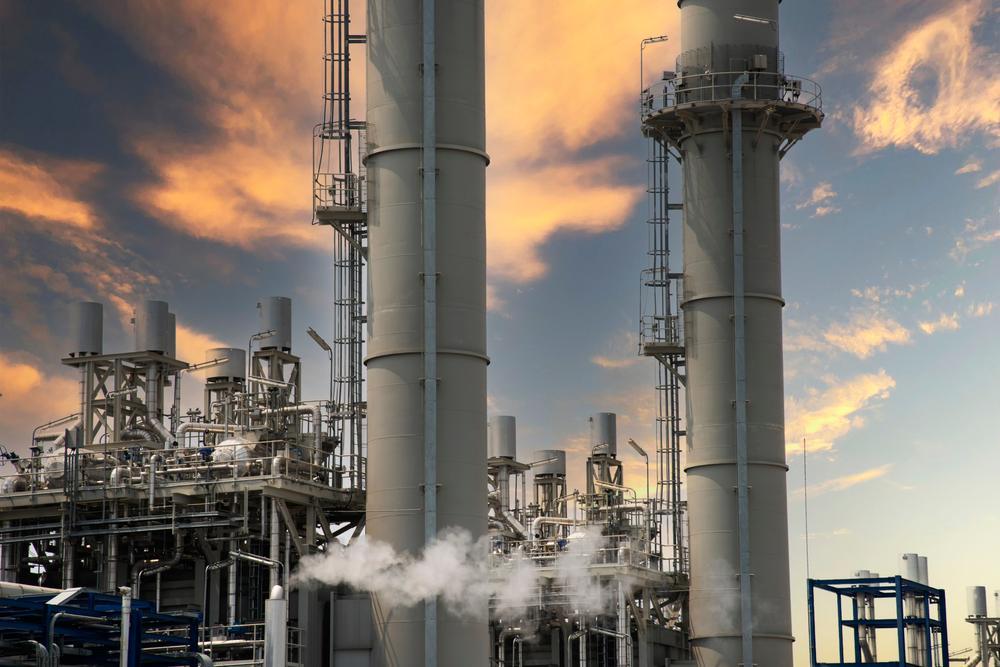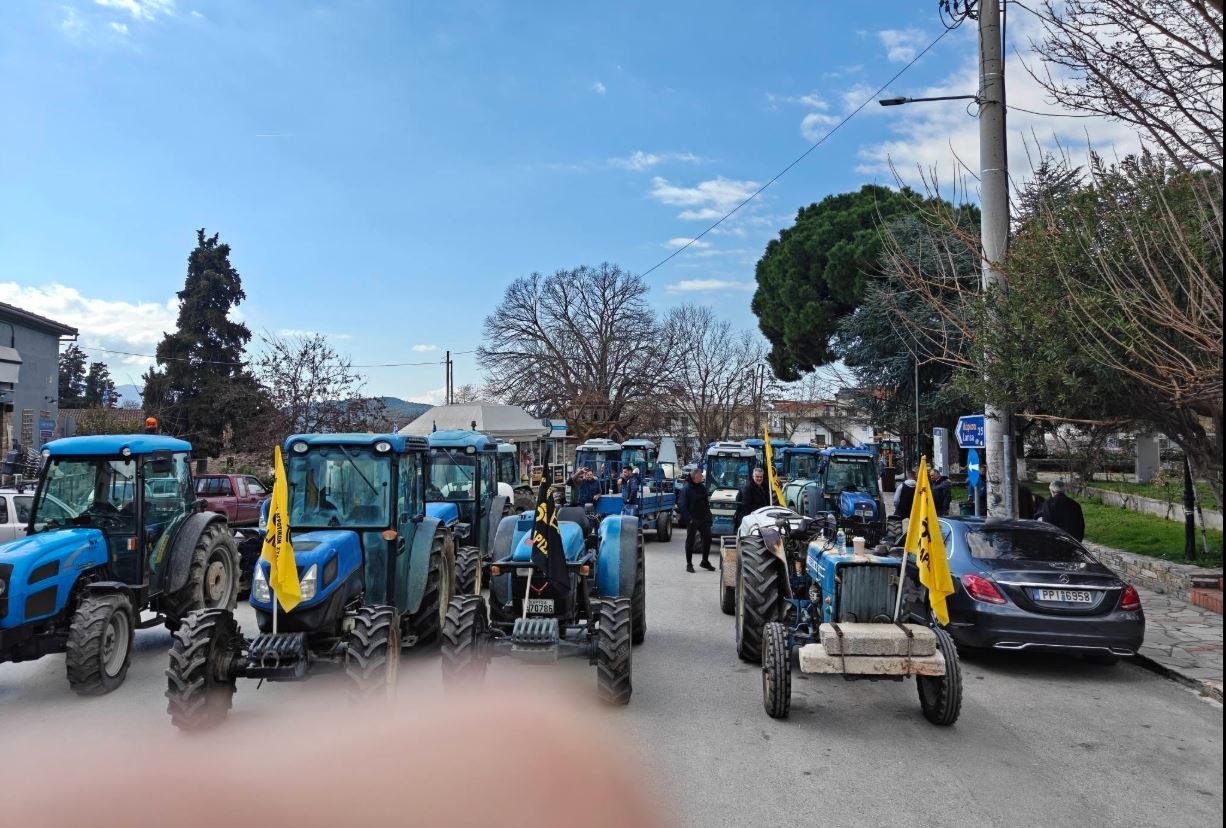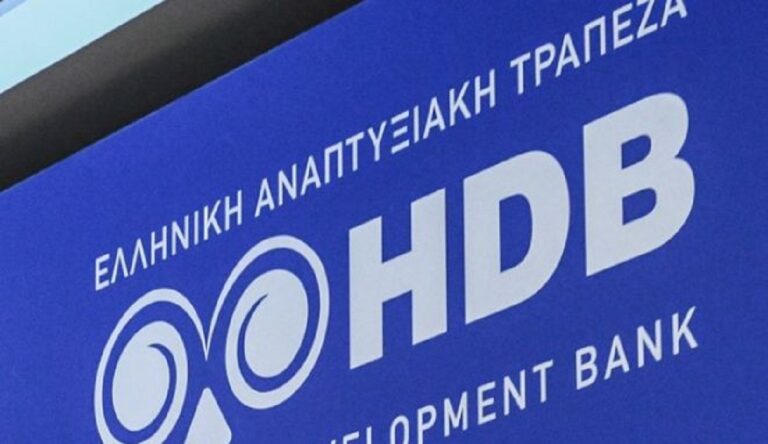“Since the beginning of the Russian invasion, everything we knew about the world has changed,” said Antonis Karakousis, director of Vima newspaper, stressing that we are experiencing a “huge disturbance” with many parallel crises that “rarely happen in history.”
According to Mr. Karakousis, its restoration will take a long time and in any case he estimated that we will now go to a global economic reality that “will be fractured” as “we will go to a block of transactions” in forms, different from what we have known until now.
He noted that three countries that are in no way negligible (Russia, Belarus and Ukraine) are currently excluded from the world economic system, while the rest of the world is unable to absorb the blockade of Russia’s trade with the Western economy, saying that Russia may lose up to 30% of its GDP within a year and this gap is difficult to rectify. India and other Eastern countries “can not absorb it.”
The director of Nea newspaper, George Mandelas characterized the day after the war in Ukraine ends as another September 11, estimating that “we are partially de-globalizing”, adding that we will have to wait to see the exact size of the changes that will befall the global equilibrium system.
In fact, Mr. Mandelas stressed that “everyone will come out a loser from this crisis”, noting that Russia will have lost its best customer, which is Europe, especially in the energy sector. He added that at the moment China and India are “taking lessons on how to break the sanctions” and are watching the Russians in case these two powers are sanctioned by the Americans.
How is Greece involved in this crisis?
As for how Greece is entering this crisis, Antonis Karakousis estimated that the big industrialized countries such as Germany, Italy, and other Central European countries that are in danger of losing their competitive advantages will be mainly affected. Therefore, Greece supported the view that as a country that relies on services, it will not face the pressures and tensions facing industrialized countries and possibly “things will be relatively more comfortable if tourism does not betray us”.
Compared to other countries, the negative effects for Greece will be lighter, he said, adding that “we may not fall into recession,” while regarding the food crisis, he noted that Ukraine does not participate in Greece’s supplies and therefore “I do not know if we will go hungry, because we also hear this.”
Giorgos Mandelas underscored that the situation today reminds him of the crash of 2007-2008 shortly before the start of the fiscal assault in Greece, noting: “”What I am afraid of at some point is whether a fund manager will turn on his computer and see that Greece has debt worth 206% of GDP and start speculating against the country,” he said, noting, however, that public debt resembles the structure of Japanese debt, adding that the ECB’s assistance is necessary so that the country does not go through what it went through after 2007-2008.
For his part, Mr. Karakousis pointed out that “the debt is largely regulated” and from this point of view “we are insured no matter how much speculation is made. What we have to spend (i.e. debt repayment costs) will not break the country.”
Restoration of collective bargaining
The director of Nea also appeared relatively optimistic regarding the overall situation of the country, saying that inflation is coming while it has been preceded by the long-term internal devaluation of the last decade, which lowered costs on many levels.
At the same time, Mr. Karakousis referred to the change of consciousness that occurred from the country’s more than ten-year adventure (including the pandemic). “People felt and understood that he could not rely on the state and other forces that would save them every time,” he said, referring to modern initiatives taking place, as well as major structural changes.
“The crisis has taken difficulties one step further,” said Mr Mandelas, referring to the fact that the current crisis, driven by inflation, has plagued society which has had fixed wages and salaries for many years.
“It is unacceptable that we do not have collective bargaining. This can not continue. “We need a point of balance,” Mr. Karakousis said adding that collective bargaining will bring a “restoration”.
“There are no excuses. Income has been lost and there must be a balance. It is a basic principle of a liberal system. It is not viable if one side does not negotiate anything,” he stressed and insisted that it is not right for the workers to bear all the pressure.
The wager of deepening the EU
Mr Mandelas made pessimistic views on further deepening and solidarity within the EU, saying that we were not going to see a permanent Recovery Fund, stressing that the Nordic countries have a specific view of all these issues that go beyond Ms. Merkel and Mr. Schauble as persons.
For his part, Mr. Karakousis expressed the view that there will be major changes in the direction of deepening the EU and referred to steps including the joint energy supply, the debate on Defense, etc.
“I am very afraid that the countries will move alone in very small blocs,” Mr Mandelas said, noting that “there are no organized alliances within the EU. The south is not as organized as the north.” He cited as an example Draghi’s distances from leaders such as Mitsotakis and Macron or Spain’s differentiation on Turkey as Spain’s stance contradicts European Southern Conference resolutions vis-à-vis Ankara’s threats against Athens.
“Such is the pressure and the events that will force Europeans to coordinate. Otherwise they have to ‘shut down shop’,” said Mr. Karakousis, expressing again more optimistic assessments about the course of deepening the EU.
The Fall of the Wall and the Twin Towers
Regarding world-historical events of the past, Antonis Karakousis spoke about the Fall of the Berlin Wall in 1989, saying that today Putin is trying to reconstruct the aftermath of that event. He added to these the attack on the Twin Towers as well as the two Iraq wars, as well as the collapse of Leaman Brothers, as global historic events.
“The ‘poster’ with the twin towers on the front pages of the newspapers on September 12 is one of the most important,” added George Mandelas.
Elections towards the end of the term of the government
Regarding the political management of the crises and the challenges of the day after in this new international landscape, Antonis Karakousis assessed that the scenarios for early elections do not exist as “they were overturned by the war”.
In fact, he estimated that not even the opposition that called for elections is now in any mood to claim elections as the environment is difficult and unknown without obvious solutions. “Everyone needs time to prepare. The most likely scenario is that the elections will be held at the end of the government’s term. Anything else will cause great upset and will reward populism. There are no magic solutions in such an environment”, director of Vima Antonis Karakousis underscored.
Populism and the scenario that threatens Macron
“Everything foreshadows that we are going for elections next year in March,” said the director of Nea, Giorgos Mandelas, expressing the position that it is “a very big problem inherent in populism” and even referred to the upcoming presidential elections in France where he estimated that a second place of leftist candidate Jean Luc Melanson in the first round of elections could challenge Macron’s power.
He even described Melanson as “dangerous” because, as he said, other extreme voices from the right, such as Éric Zemmour and Marin Le Pen, could be more easily close ranks behind him. “If they all come together, this is the scenario that threatens Macron…”.
